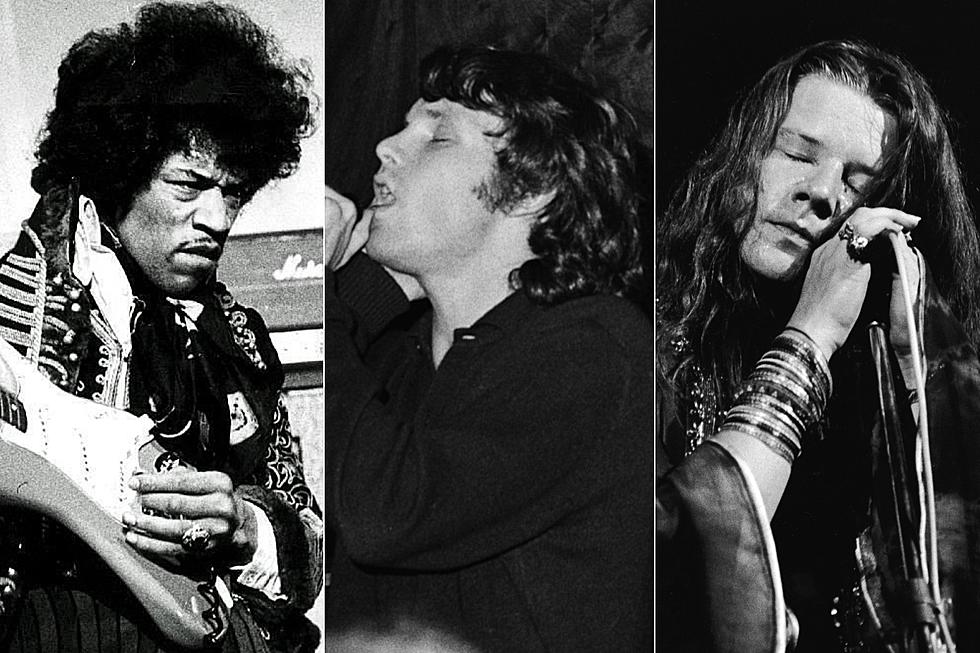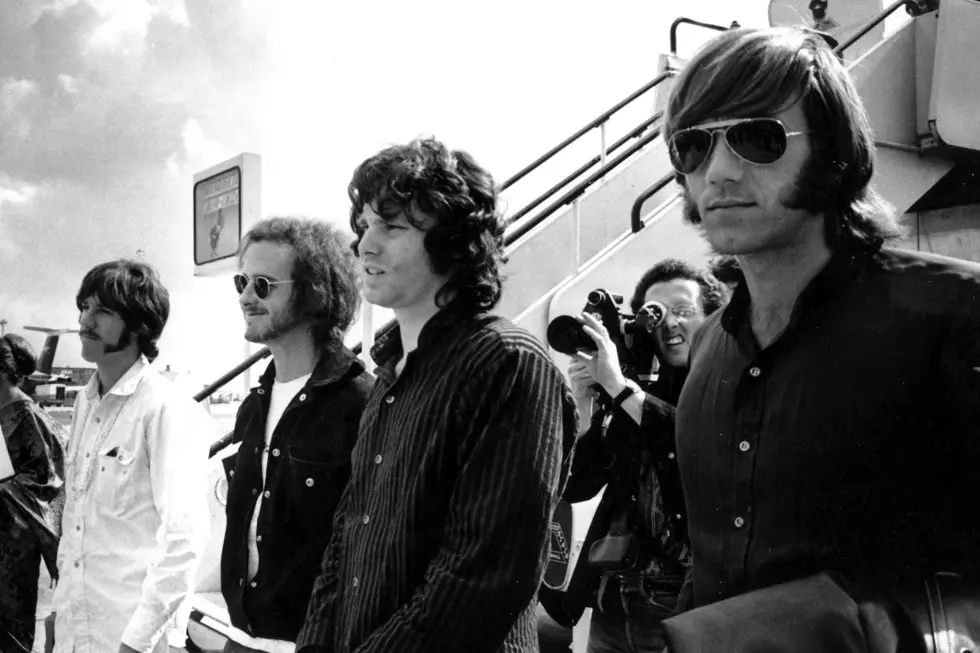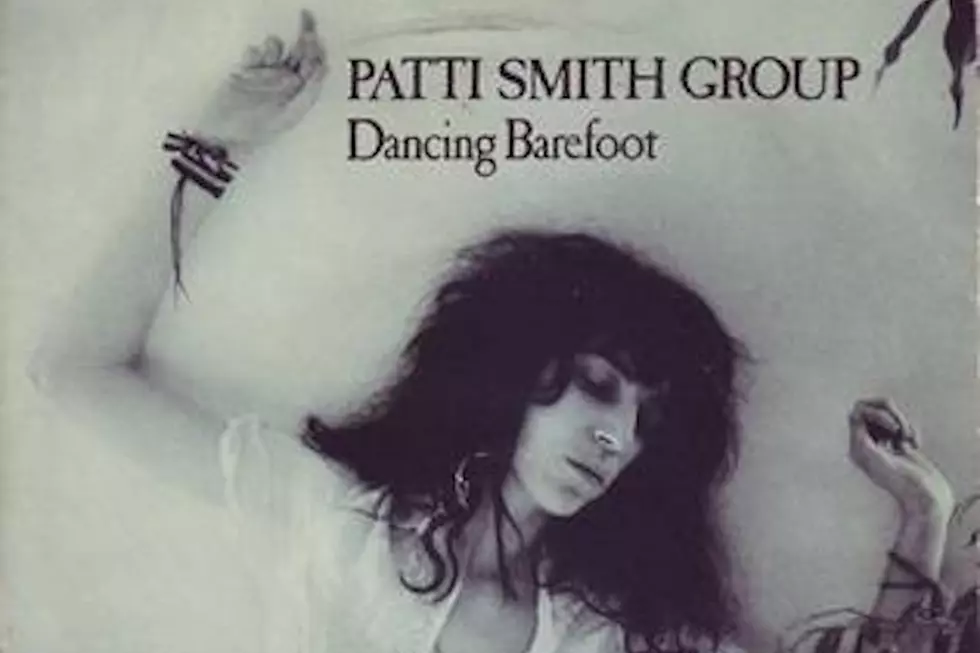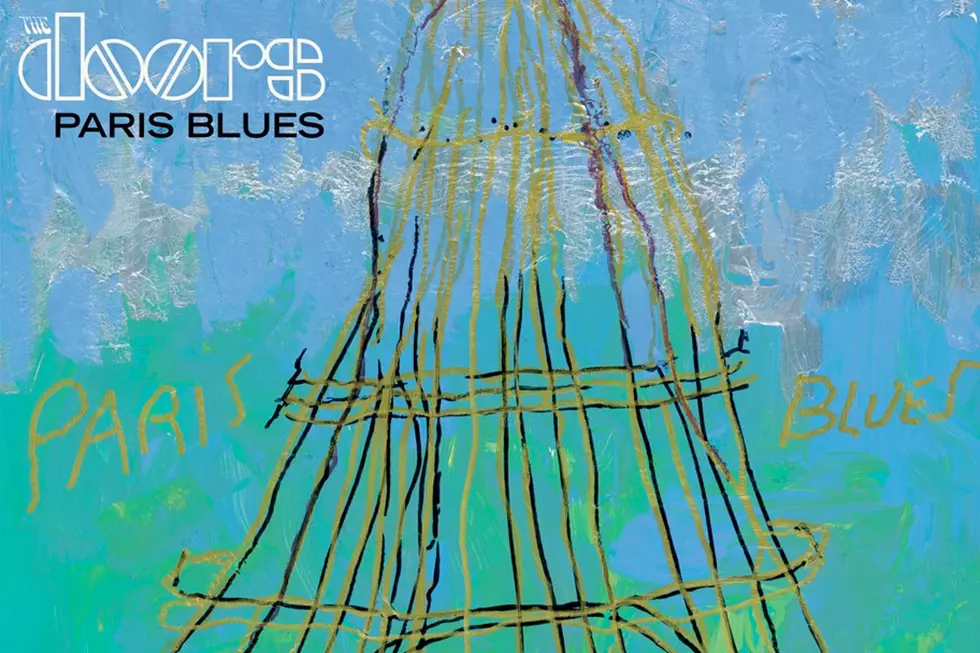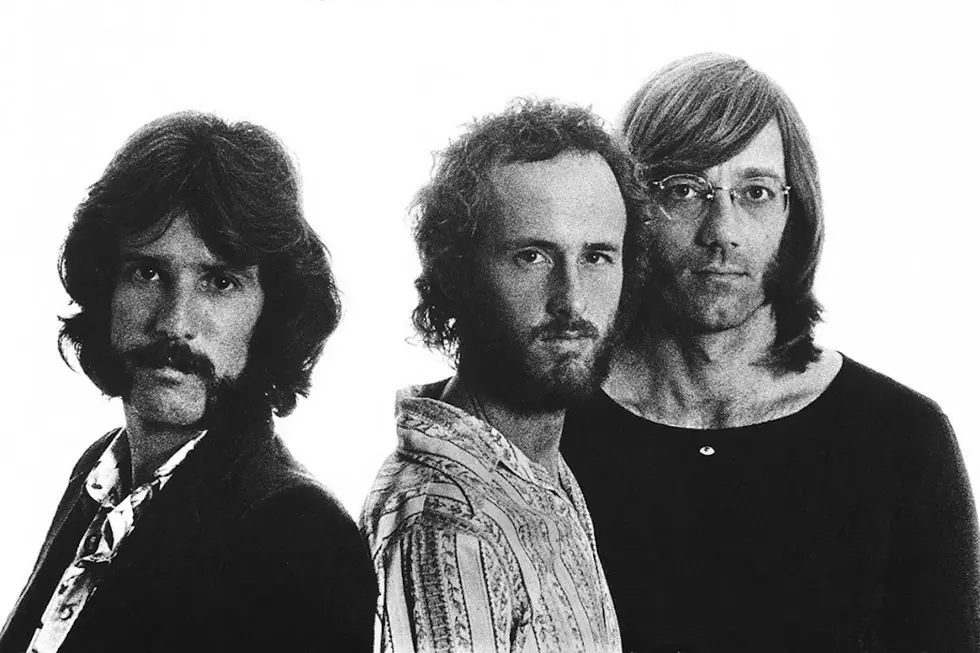
When the Doors Continued Without Jim Morrison on ‘Other Voices’
What’s a band to do when its singer dies? Some acts have answered that question by breaking up or bringing in a new vocalist. On Other Voices, the Doors decided to go on without Jim Morrison but declined to replace him.
The Morrison-fronted version of the band went out on a high note with 1971’s L.A. Woman. By this time, the Doors had decided to stop playing live due to Morrison’s increasingly erratic behavior onstage. In March of that year, after completing work on L.A. Woman, and with possible jail time for his notorious indecent exposure conviction still hanging over his head, Morrison and his girlfriend, Pamela Courson, moved to Paris, where he died on July 3.
Ray Manzarek, Robby Krieger and John Densmore had already started work on new tracks for the follow-up to L.A. Woman shortly before Morrison’s death, with the hope he’d eventually return to the U.S. to help complete them. When that possibility was removed, the rest of the Doors made what must have been a difficult decision to handle all the singing and writing chores themselves for Other Voices, which was released just three months after Morrison’s death on Oct. 18, 1971.
You’ve got to give them credit: It was an enormously ballsy move, even though the gambit ultimately failed to pay off. After all, Jim Morrison was one of the most dynamic performers, most distinctive lyricists and biggest sex symbols of the era, and his three bandmates, gifted as they were, were none of these things.
Nevertheless, they finished Other Voices with Manzarek and Krieger sharing the lead vocals and songwriting. The results were not necessarily the train wreck many might have expected, but they were far from what anyone expected from the Doors, and the record pretty much sank from sight. Today, most people probably don’t even realize there was a post-Morrison incarnation of the band, thinking L.A. Woman was the swan song that it should have been.
Listening to it five decades later, it’s hard not to feel sympathetic toward the trio, who did their damnedest to keep the whole thing going. The biggest obstacle was that none of them really had the necessary vocal chops. They might have been able to get by with some sub-par lyrics, but not without somebody to deliver them convincingly.
Instinct probably told them that bringing in a replacement would have proven disastrous, since a new singer would never be able to escape the inevitable Morrison comparisons, no matter who it was. (Iggy Pop was reportedly considered at one point). They probably figured keeping it all in the family would be a more organic, less controversial move.
Unfortunately, neither Manzarek nor Krieger was much of a singer. Manzarek would sometimes fill in for Morrison onstage when the latter was too drunk to sing, but he wasn’t really qualified to carry an album as a lead vocalist. The end result is a bit like what would have happened if Phil Lesh had assumed the bulk of the lead vocal duties in the Grateful Dead.
Listen to the Doors' 'Tightrope Ride'
Krieger’s reedy, Dylanesque whine made him a technically worse singer than Manzarek, but the offbeat, ragamuffin quality of his vocals actually made him the more appealing of the two. And he had taken the lead vocal slot on “Runnin’ Blue” from The Soft Parade. Still, that hardly made him a suitable successor to Morrison.
The lyrics are mostly mediocre-to-acceptable, lacking the poetic flair that was Morrison’s trademark, but they’re far from embarrassing. And most of the music would have probably worked out just fine if the tunes had Morrison at their center. The songs don’t deviate too much from the stripped-down blues-rock format of L.A. Woman.
“In the Eye of the Sun” revolves a simple sinuous, bluesy electric piano riff, but Manzarek’s lyrics try too hard to capture that moody Morrison mysterioso vibe, and his singing is more unctuous than intense. The straight-ahead rocking feel and honky tonk piano on “Variety Is the Spice of Life” would have probably worked fine on a record like Morrison Hotel, but Krieger’s goofy lyrics and whiny vocals don’t do much to sell the song.
“Ships w/ Sails” works up a nice little jazzy Latin-inflected feel, but get a load of the first couple of lines out of Manzarek’s mouth: “Well you ask how much I love you / Why do ships with sails love the wind? / And will I be thinking of you / Will I ever pass this way again?”
“Tightrope Ride” is probably the most straightforward rocker and the most traditionally Doorsy tune on the album, and as a single it actually sneaked into the lower rungs of the Billboard Hot 100. Manzarek manages to get enough gravel into his delivery to give the song the grit it needs.
Harmonizing together on “Down on the Farm,” Manzarek and Krieger achieve an endearingly offbeat feel, and the tune crisscrosses interestingly between post-psychedelia and roots rock, as long as you don’t listen too closely to the lyrics. As the title suggests, the bluesy “I’m Horny, I’m Stoned” doesn’t take itself too seriously, and could have fallen from the back of Country Joe & the Fish’s equipment truck.
“Wandering Musician” opens with a couple of minutes of piano noodling before leading into Manzarek’s worst vocal performance of the album, as he strives fruitlessly to sound soulful. Musically, the closing cut, “Hang on to Your Life,” hangs together quite well, with John Densmore and percussionist Francisco Aguabella setting up some nice polyrhythms, while Manzarek and Krieger drop some appealingly breezy, jazzy licks over the top. Unfortunately, the song is not an instrumental.
In retrospect, regardless of the way Other Voices turned out, you really couldn’t blame the boys for trying. But the fact remains that the following year they went ahead and made another “Doors” record together, the equally forgettable Full Circle. For that, you can blame them.
Top 25 Psychedelic Rock Albums
Jim Morrison is Part of Rock’s Tragic ‘27 Club’
More From Ultimate Classic Rock
